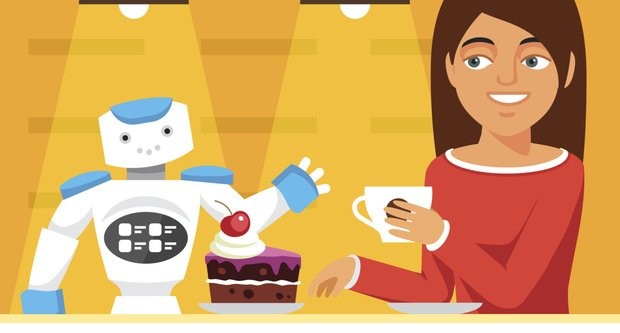
A warm welcome to BOTs in HR
VUCA is passé. Disruption is the new buzz word. The coolest thing to do is to disrupt someone or something!
It is most cool if what you do can disrupt HR! First, HR outsourcing was the big disruption. That was followed by learning on the go. Then came along mobile apps in HR. Not to forget scrapping the bell curve. Well, that was not enough. Some suggested that HR be merged with Finance and someone else suggested that they blow HR up. Now all that does not still seem to be good enough. The next big disruption is to BOTify HR. (a term I am using to the process of getting BOTs to do what humans in HR did). It is predicted that BOTs will take over a lot of HR work and that millions of HR jobs will be lost all over the world to BOTs. (millions of jobs being lost is a true testimony to real disruption!)
It is envisioned that employees will engage with chatbots for everything from selection interviews to performance reviews to applying for leave to keeping them happy. Wow, that would be the day.
As I listen to and read about all these predictions and disruptive ideas, four thoughts come up in my mind.
What qualifies as HR work: A lot of what has been outsourced in HR so far or what is expected to be BOTified is not want I would call HR work. All of these are employee services of an operational and administrative nature which were at one time performed by clerical staff within the HR function. So, if BOTs will take away all the remaining operational and administrative service tasks – like sharing the same information a thousand times with a smile, then it is actually a very good thing. Maybe many of the jobs in HR shared services might be lost. All this is good because in the first place, these do not qualify as HR work. Even more important, BOTs might do a better job.
Job design in HR: As I talk to hundreds of young HR people, all of them tell me that they experience a huge disconnect between what they thought they would do in HR and what they are actually doing. In the interest of scale and process orientation, the jobs of many front line HR professionals have been shorn of task variety, intellectual challenge, a sense of fulfilment and any form of identity. Many also experience a sense of meaninglessness in what they do and as a result, they may not end up not doing a great job of it. So, if BOTs can take the mundane and the routine out of their work and make their job a bit more enriched, that would be great. So, BOTs are most welcome.
Employees don’t want to talk to HR: There is a fear that employees may miss talking to a human being and things will get dehumanised with BOTs around. Not really. A very large number of employees do not want to talk to anyone in HR even today. In fact, if an employee does not need to talk to anyone in HR, it is a good sign that everything is working the way it should be. On the contrary, in today’s context, if someone from HR wants to talk to an employee, the employee may only get anxious. It is not different from the way we conduct our everyday business transactions through a machine or a phone or app and prefer not having to talk to anyone. So, instead of going to a self-service portal or using an app, if an employee feels comfortable talking to a BOT, that’s great.
Better expectation management: When employees interact with HR professionals, their expectations might often be of instant solutions, a yes to all that they ask, a display of great competence, consistent responsiveness, empathy enough to understand their needs and the ability to show flexibility and responsiveness to solve their problems. When all or some of this does not happen (as is often the case), there is a huge sense of disappointment. It is my hope that when employees engage with BOTs and the BOT says I don’t know, or I can’t do, maybe employees would be more forgiving. The BOT might in fact do a better job of saying no. The BOT may also not have its own need for motivation and fair treatment and even more importantly, not have conflicts with the views and polices and values of top management. So, you see, there might actually be several clever benefits of deploying BOTs to do some of the HR work!
It is my view that in the years to come, there will be far fewer people doing real HR work. A lot of what we misperceive or call as HR work today, will not be done by HR folks and that will be a great thing if it does happen.
So, BOTs, a warm welcome!
